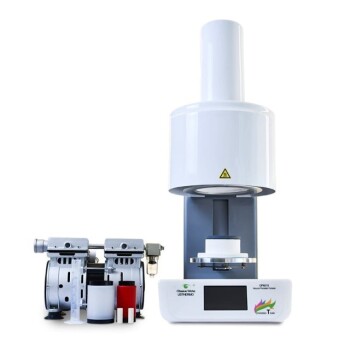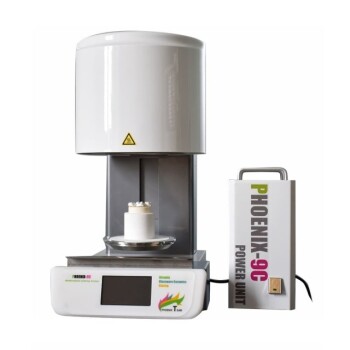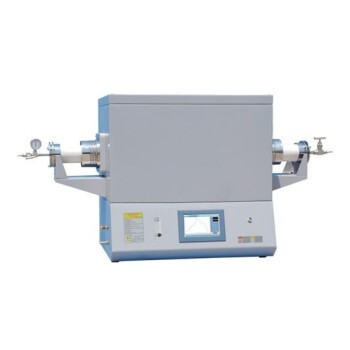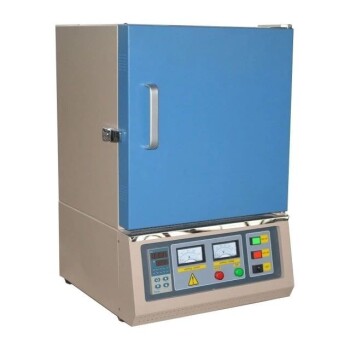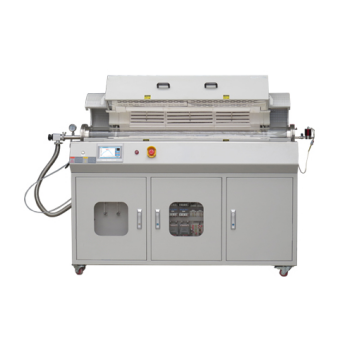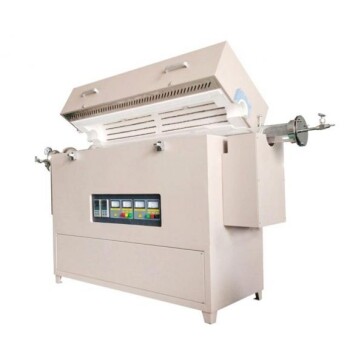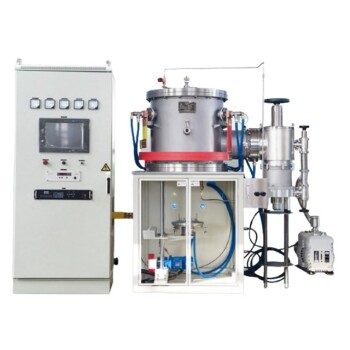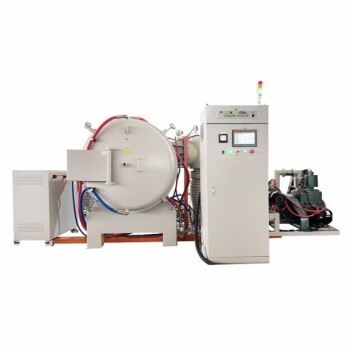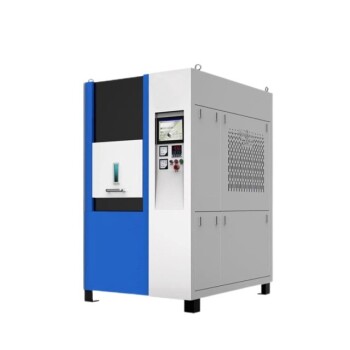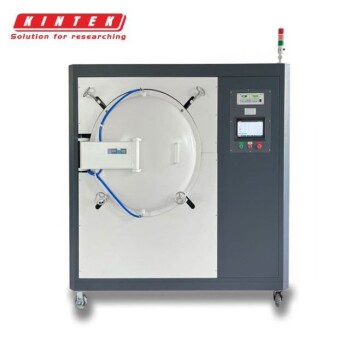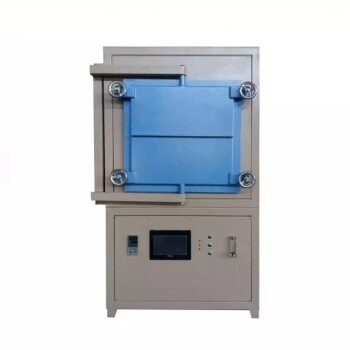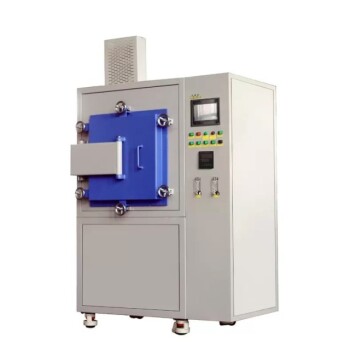In practice, the typical time for sintering zirconia ranges from several hours to an overnight cycle. This wide variation is not arbitrary; it is a direct consequence of a necessary balance between production speed, final material strength, and the desired aesthetic translucency.
Sintering is not a single action but a complete thermal process. The total duration is a function of three distinct phases—heating, dwelling, and cooling—each of which is critical to achieving the final density, strength, and appearance of the zirconia restoration.
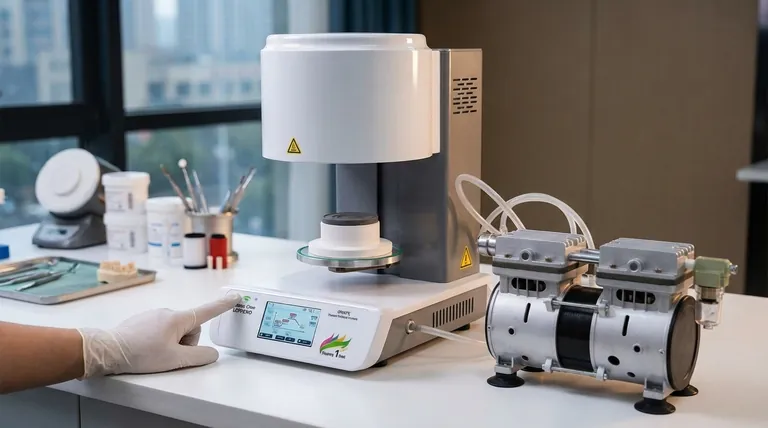
Deconstructing the Sintering Cycle
Understanding why sintering takes as long as it does requires breaking the process down into its core stages. Each stage serves a specific purpose, and rushing it can compromise the integrity of the final product.
The Heating Phase (Ramp Rate)
The initial phase involves gradually raising the temperature inside the furnace. This ramp-up must be slow and controlled.
A rapid increase in temperature can create thermal shock, introducing microscopic cracks and internal stresses into the material before it has even reached its peak sintering temperature. This phase alone can take several hours to ensure uniformity.
The Dwell Phase (Soaking)
This is the stage where the actual sintering occurs. The furnace holds the zirconia at a peak temperature, typically between 1450°C and 1550°C.
During this "soak," the individual zirconia particles fuse together, eliminating pores and causing the material to shrink and densify. This crystallization process is what gives the zirconia its immense strength and desired translucency. The duration of the dwell phase directly dictates how complete this process is.
The Cooling Phase
Just as important as the heating phase, the cooling process must also be gradual and controlled. Removing the zirconia from the furnace too quickly will cause a catastrophic thermal shock, leading to fractures.
A controlled cooling rate allows the crystal structure to settle without introducing new stresses, preserving the strength gained during the dwell phase.
Understanding the Trade-offs: Speed vs. Quality
The primary tension in any sintering protocol is the balance between efficiency and quality. While faster cycles are available, they come with significant compromises that must be understood.
The Lure of "Speed Sintering"
Some modern furnaces offer "speed" cycles that can dramatically reduce the overall time. These programs achieve this by using extremely aggressive ramp rates and shorter dwell times.
While tempting for increasing lab throughput, this approach deviates from the ideal conditions for material transformation.
The Impact on Strength and Durability
The core purpose of sintering is to achieve maximum densification for strength. A shorter dwell time may not be sufficient for the particles to fully fuse, potentially leaving behind more porosity.
This can result in a restoration with lower flexural strength and reduced long-term durability, making it more susceptible to fracture under occlusal loads.
The Effect on Aesthetics and Translucency
Aesthetics are directly linked to the zirconia's crystalline structure, which is developed during the dwell phase. Rushing this stage can inhibit full crystal growth.
This often results in a more opaque, less lifelike restoration that lacks the natural translucency required for high-end aesthetic cases. Conventional, longer cycles give the material the time it needs to develop its optimal optical properties.
Selecting the Right Sintering Protocol
Your choice of sintering cycle should be a deliberate decision based on the specific requirements of the restoration and your clinical or business goals.
- If your primary focus is maximum strength and aesthetics: Always default to the conventional, longer sintering cycle recommended by the zirconia manufacturer.
- If your primary focus is rapid turnaround for non-aesthetic cases: A speed cycle may be acceptable, but you must use a zirconia specifically validated for that cycle and accept the potential compromise in translucency.
- If your primary focus is consistency and reliability: Strictly adhere to the material manufacturer's instructions, as their recommended cycle is optimized for their unique material chemistry.
Ultimately, mastering the sintering cycle is about deliberately controlling time and temperature to achieve a predictable, high-quality outcome.
Summary Table:
| Phase | Typical Duration | Purpose |
|---|---|---|
| Heating | Several hours | Gradual temperature increase to prevent thermal shock |
| Dwell | Varies (e.g., hours to overnight) | Fuses particles for densification, strength, and translucency |
| Cooling | Controlled hours | Prevents fractures by allowing crystal structure to settle |
Upgrade your lab's sintering process with KINTEK's advanced high-temperature furnaces! Leveraging exceptional R&D and in-house manufacturing, we provide diverse laboratories with tailored solutions like Muffle, Tube, Rotary, Vacuum & Atmosphere Furnaces, and CVD/PECVD Systems. Our deep customization capabilities ensure precise control over sintering cycles for optimal zirconia strength and aesthetics. Contact us today to discuss how our furnaces can enhance your productivity and quality!
Visual Guide

Related Products
- Dental Porcelain Zirconia Sintering Ceramic Vacuum Press Furnace
- Chairside Dental Porcelain Zirconia Sintering Furnace with Transformer for Ceramic Restorations
- Laboratory Muffle Oven Furnace with Bottom Lifting
- 1700℃ High Temperature Laboratory Tube Furnace with Quartz or Alumina Tube
- High Temperature Muffle Oven Furnace for Laboratory Debinding and Pre Sintering
People Also Ask
- What is the purpose of dental sintering furnaces? Transform Zirconia into Durable, High-Quality Dental Restorations
- What factors should be considered when choosing a dental sintering furnace? Ensure Quality and Efficiency for Your Lab
- What are some common mistakes when operating dental sintering furnaces? Avoid Costly Errors for Perfect Zirconia Restorations
- Why is proper ventilation important in dental sintering furnaces? Ensure Quality and Safety in Your Lab
- Why is precise temperature control important in dental sintering furnaces? Ensure Strong, Aesthetic Dental Restorations
